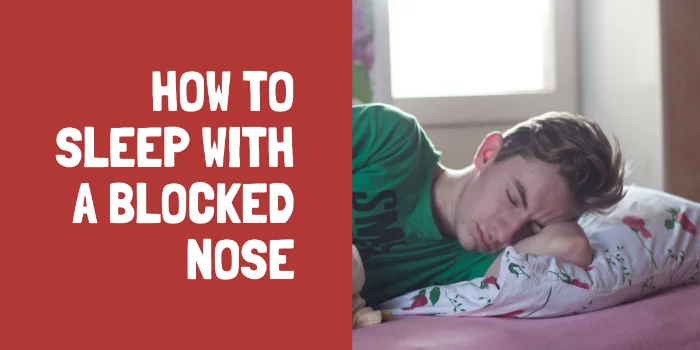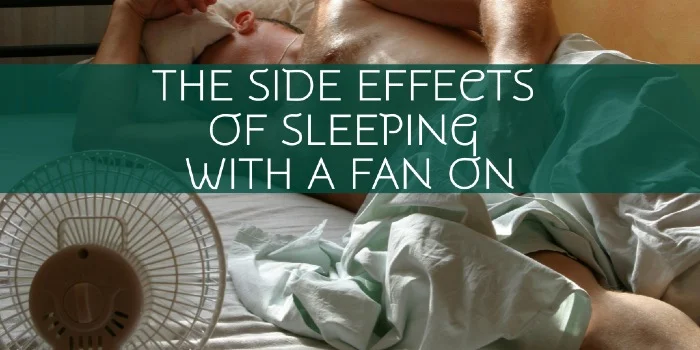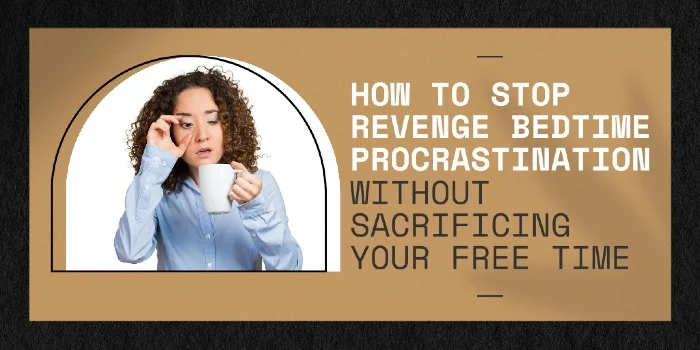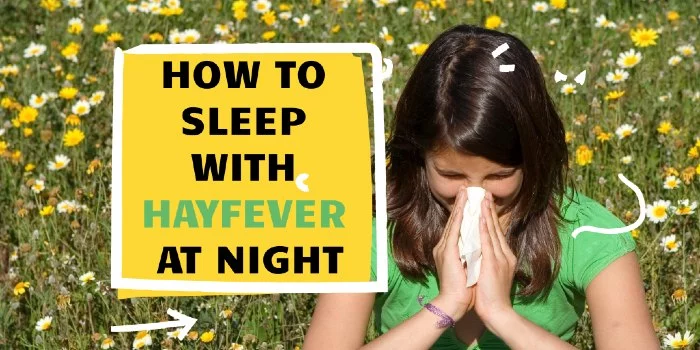Trying to sleep with a blocked nose is no fun. It makes it difficult to fall asleep, keeps you up and night and frankly, wastes a lot of time feeling sorry for yourself.
Luckily, most times congestion is temporary. It can be the cause of a common cold or sickness bug, or if you’re particular unluckily, sinusitis.
This is an infection of your sinuses, which can cause pretty severe congestion. Before you sink into despair, this infection will usually clear up after 2 to 3 weeks.
Congestion can also be caused by allergies, as your body will make cause the inside of your nose to swell as a defence against the allergen. Allergies are incredibly common, affecting around 1 in 5 people in the UK.
Whatever the cause of your blocked nose, we know that you want relief. Now. So read on to discover how you can sleep with congestion.
How does a blocked nose impact your sleep?
Firstly, blocked noses make sleep more difficult purely because you’re not comfortable. It’s hard to imagine yourself drifting away on a bed of pillows if you can’t help but feel congested and ill.
No matter how much you try not to think about it, it will still pop into your mind and leave you tossing and turning all night.
Having a blocked nose also means you need to breathe with your mouth open, which doesn’t allow as much oxygen as breathing through your nose. Don’t believe us? See for your self with this little experiment:
- Breathe out slowly through your mouth, until it feels like there’s nothing left.
- Breathe back in, slowly through your mouth. Count the seconds in your head as you breathe back now.
- Repeat step 1 and 2, breathing in through your nose instead of your mouth.
We’re willing to bet that you counted higher by breathing in through your nose, right?.
With less oxygen going in, your body will feel more tired and run down. In addition, you’ll also be more at risk of a dry mouth, lips and bad breath. Being a mouth breather is not something you want to be.
Other side effects
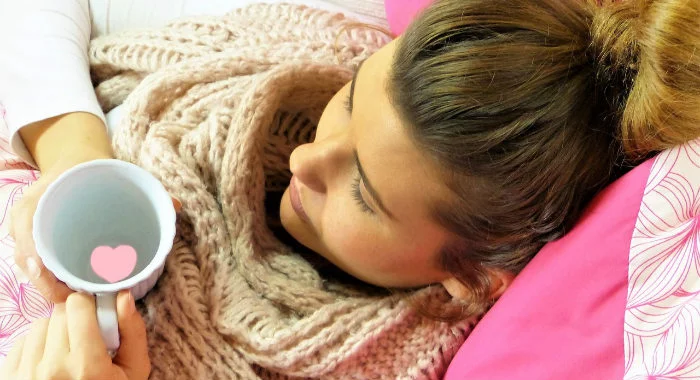
Having a blocked nose can also increase your coughing at night, which is a fantastic way of keeping you up and feeling sorry for yourself. The reason behind this is a tad disgusting, just to pre-warn you.
But, finding a position to comfortably breathe in at night causes a thick mucus called postnasal drip to literally drip down the back of your throat and start to pool together there. Interrupting your breathing, this sensation will make your body cough to try and remove the mucus. We did warn you it was gross.
In addition, a blocked nose can cause snoring. This happens when the flow of air through your nose and throat is blocked. This will make the tissue in these areas vibrate, causing the snoring sound.
A blocked nose makes it more difficult for you to breathe, creating something similar to a vacuum in your throat.
Although your partner might disagree, snoring isn’t viewed as a serious sleep problem. But the worse it is, the more chance you have of waking up in the middle of the night, disrupting your sleep. This means you don’t make correctly through each stage of the sleep cycle, leaving you feeling more tired, groggy and run-down in the morning.
Can you suffocate in your sleep from a stuffy nose?
Although this may seem like a silly question to some, if you’ve ever suffered from severe congestion, you’ll know how much of a struggle it is to breathe when your nose is blocked.
This fear makes sense. But rest assured, no one tends to die by suffocation from a blocked nose.
If anything disrupts your breathing during your sleep, your body has a natural defence system to help wake you up. It’s why those suffering from sleep apnea wake up several times during the night.
The worry should come if you have had severe symptoms, such as sinus pain for over a week or a fever. This could indicate that you have a sinus infection and will require a GP visit and treatment before the infection spreads and becomes more threatening.
Why do I just get a blocked nose when lying down?
If you feel like your blocked nose only happens at night, you’re not alone. There are several factors that can make congestion appear and feel worse at night.
One of these factors is the position of your body as you lay down. This can cause your blood pressure to change, increasing the blood flow to your head and nasal passageways, inflaming the blood vessels and causing congestion.
You’re also fighting gravity as you lay down. This means that any mucus that is in your nose or sinuses hasn’t got anywhere to go and can pool up in your nose or at the back of your throat.
A cause of nighttime congestion is also, surprisingly enough, acid reflux. This is because if you lie down with a stomach full of acid, it can travel up the oesophagus and irritate the back of your throat and nasal passageways. The irritation will cause further inflammation, causing congestion as a symptom of heartburn.
In addition, changes in the atmosphere can also cause congestion. This is because cold and dry air can make the mucus in your nose dry and thick. This makes it harder to for the mucus to move and drain, causing a bigger blockage.
How can I unblock my nose at night?
Take an antihistamine before bed
If your congestion is triggered by allergic reactions, taking an antihistamine before bed should help keep your nose unblocked during the night.
These tablets work by preventing receptors in your body from reacting to an allergic reaction. Although they don’t cure your allergies or get rid of the source, they help keep the symptoms at bay for a better nights sleep.
A great side effect of antihistamines is that they can also cause drowsiness. Which means you’ll feel sleepier as you go to bed, helping you sleep like a baby.
If you use anti-allergen spray or any other solutions for allergies, you can also try using these before you go to bed.
Create an allergy-free environment
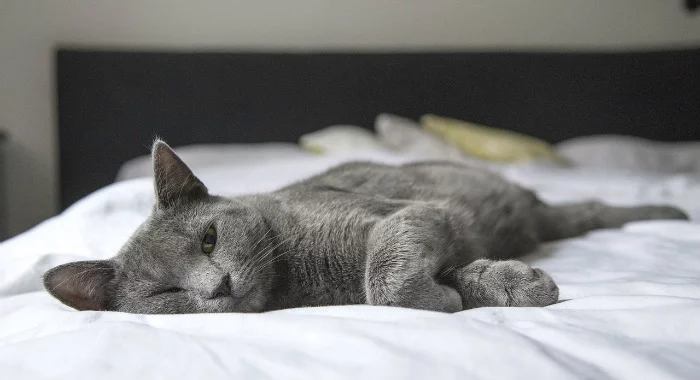
As we covered in the point above, antihistamines are great for reducing the symptoms of allergies. But the best cure is to get rid of what is causing the reaction in the first place.
If you have a pet allergy, make sure that your pet is kept out of your bedroom at night and not allowed on the bed. In addition, you might want to invest in a hypoallergenic slipcover to prevent dust-mites from infecting your mattress.
For those unaware, dust mites are microscopic creatures that feed on the skin cells you naturally shed during the night. If your sheets and pillows aren’t washed often enough, or if your mattress is old, they will make a home in your bed.
This is bad news, as dust mites are one of the biggest causes of allergies. Removing the dust mites should ease your allergies, helping reduce congestion.
It’s also important to keep the environment as clean as possible. A dusty room can make your allergins worse, blocking your nose at night.
Elevate your head as you sleep
As discussed earlier, a lot of night time congestion is caused by laying down flat. However, some of these symptoms can be easily fixed by simply sleeping with your head propped up on a few pillows.
Sleeping in this position decreases the amount of mucus that can pool up in your nose, keeping your airways clear.
The downside is that if you’re not used to sleeping like this, it can be uncomfortable to get used to. Some people may also find it causes neck pain or discomfort, so this simple fix doesn’t work for everyone. We’d recommend trying this for a few nights to see if any discomfort occurs.
Avoid alcohol or caffeine before bed
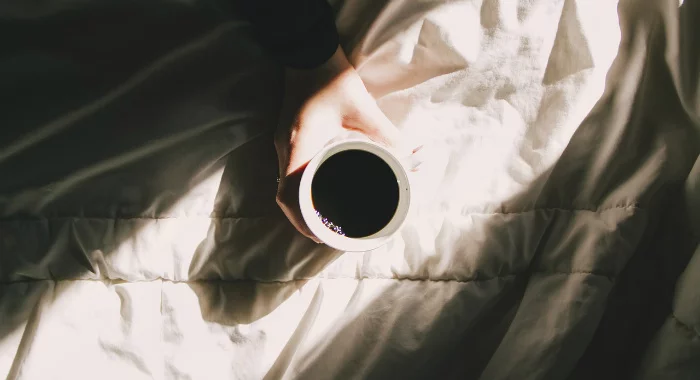
If you want to be congestion-free, you need to skip the nightcap. Alcohol can increase symptoms of congestion. But worse than this, it can also leave you feeling dehydrated which increases sinus pain.
Caffeine is also dehydrating, so it’s best to stick to water or non-alcoholic drinks such as herbal tea before bed.
These substances don’t just make congestion worse, they also negatively impact your sleep. We’re sure you’ve often reached for the kettle when you’ve been in the need of a pick-me-up and know that caffeine is a great booster for those sleepy mornings.
But caffeine doesn’t actually make you less tired. It just blocks your body from feeling the effects by blocking a chemical called adenosine. When it comes to night time, this means that even though you’re in desperate need of sleep, your body still won’t think it’s time to send you off.
Alcohol also has a damaging impact on your sleep, despite age-old wife tales that they can help knock you out for the night. What actually happens is that alcohol decreases the amount of melatonin that your body is able to produce. Without melatonin, your circadian rhythm is disturbed, making it harder to regulate your sleep.
Use clearing nasal sprays during the day
During the day, make use of simple over-the-counter nasal sprays to unblock your nose.
Try not to blow your nose. According to research, the excess pressure that’s generated when you blow your nose can cause fluid to travel into your sinuses. This increases the potential risk of infection and can make you feel more congested.
Keeping the nasal passages moist will help ease congestion. This is because it stops any mucus from drying up inside and blocking your nasal passageways. Yeah, it sounds gross. But you need to know the facts.
Build the atmosphere for sleeping
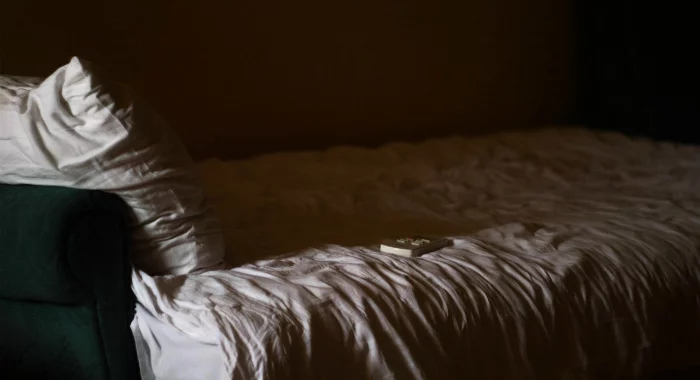
The right environment can have a big impact on your sleep. Cool and dark rooms are also the optimum conditions for getting a good night’s sleep. Which is completely understandable if you’ve ever tried to sleep during a summer heatwave. It’s not pleasant at all.
When it comes to congestion, you also need to make sure that the air isn’t too dry. As mentioned earlier dry air can cause the mucus to harden and block your nasal passageways. Which means that you might want to invest in a humidifier for your bedroom to keep the air nice and moist.
If you want to get the most ZZZ’s, avoid hot and dry air in a bright room.
Don’t avoid spicy foods
Most spicy foods, including hot sauces, curries and salsas, contain a chemical called capsaicin.
This chemical has a thinning effect on mucus, which can relieve some symptoms of nasal congestion. So, don’t be afraid to up your spice level! Just don’t eat them too close to bedtime. If you suffer from acid reflux, they can upset your stomach further.
Give yourself a bedtime steam
Steam can offer grat congestion relief by loosening the mucus in your passageways.
You don’t need to own a steam room to benefit from this either. You can create an at-home steam experience in your own bathroom.
All you need to do is fill your sink with warm water and place a towel over your head. Once done, lean over the sink, making sure that the towel provides a loose seal to trap the vapours around your head.
Once the steam has built up, take a few deep slow breaths to clear your airways. Be careful not to over-do it here. If you start to feel light-headed, take the towel off and grab a cold drink of water in a different room.
Having a hot shower can also offer some of the same relief. Before you go to bed, take a hot shower (making sure it doesn’t burn you!) making sure the bathroom door is closed. Once enough steam has been created, take a few slow, deep breaths in to help clear your airways.
Try a nasal strip
Nasal strips are over-the-counter products designed to help keep your nasal passages open during the night. Generally, these devices are inexpensive but don’t work for everyone.
For a lot of people, nasal strips aren’t powerful enough to stop snoring. But if you’re looking for a little extra congestion relief, they might work like a dream for you.
Use a chest rub before bed
Essential oil or menthol chest rubs can help improve sleep by making you feel less congested.
However, this isn’t popular for everyone. Although some people still swear by it, others have doubted how effective chest rubs actually are. We’ll leave it to you to form your own opinions.
Most of this debate is based on people incorrectly using chest rubs through. If using a chest rub, make sure that you only put the rub on your chest. Never put it under your nose and do not give to children under 2 years old.
Test what works for you
Although these 10 tips can help ease congestion for a better night’s sleep, they don’t work on everyone. You will have to test and see what works for you.
This doesn’t mean you have to test every single one of these items in order. If you know what’s causing your congestion, you can try the tips to help cure that particular cause. For example, if you know that they are caused by allergies, tip number 2 might be the only one you’ll ever need.
Hopefully, one of these tips will be the perfect thing you need to start enjoying your peaceful and soundless night.
